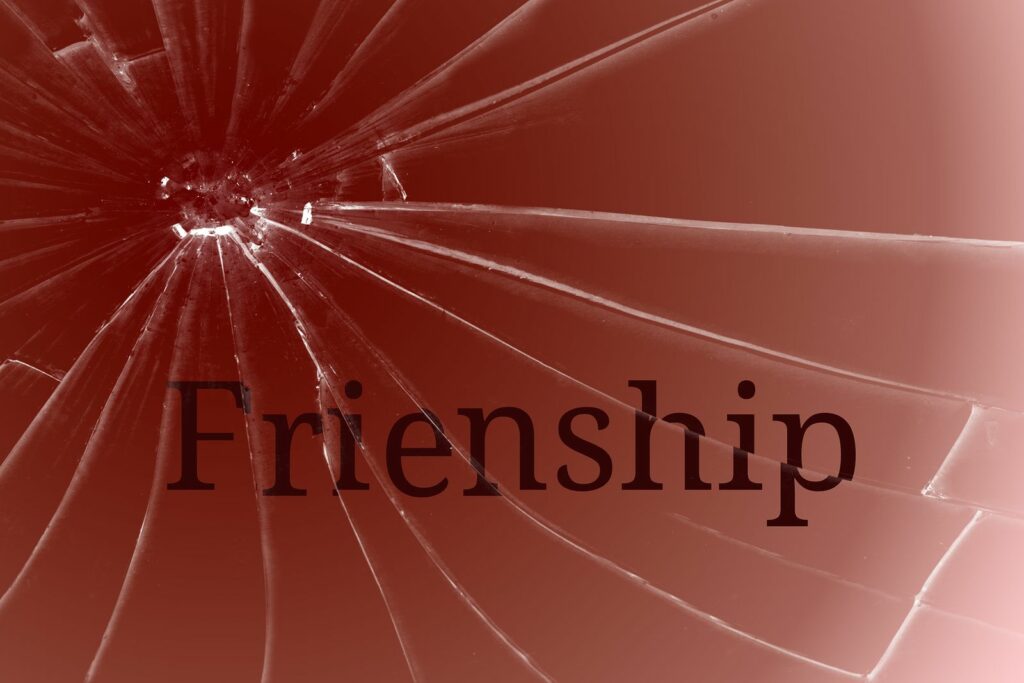
Mending a Broken Friendship
Friendships end for many different reasons. Some friends grow apart naturally as their lives, interests, and responsibilities change. But some friendships cease abruptly, ending with negative feelings on one side or both sides of the relationship.
It doesn’t matter how old or young we may be, most friendships have ups and downs, and most friends become upset with each other once in a while. Thankfully, such conflicts usually do not destroy a relationship beyond repair.
When a friendship does break apart in deep hurt or anger, the negative feelings can make it very difficult to put the pieces back together again. Even if the bond was very strong before the break, it can take work to repair the damage and rebuild the connection. If the friendship was meaningful though… and the friend loved… it can be worth giving it a try.
There are instances, of course, when it may be impossible or even detrimental to restore a severed friendship. But, when both parties have the desire and both are willing to put in the effort, it is often possible to restore a once strong and cherished bond.
If you’re thinking about attempting to mend a broken friendship, you may want to consider the following suggestions. Every friendship and situation is unique though, which means a step that may help repair one friendship may not be as beneficial to another relationship.
Suggestions that can be helpful…
- Don’t be afraid to take the first step. If you wait for your friend to come to you, you may be waiting a long time… even if the person misses the friendship just as much as you do. Take the initiative. Reach out to your friend. It can’t hurt. Tell your friend that you’d like to find a way to mend your shattered friendship. Ask how the other person feels. Hopefully, your friend also is uncomfortable with the void left by your missing friendship. Be prepared for the possibility that your friend may not be interested in reconciling. If that’s the case, at least you’ll know you did what you could to try to rebuild the relationship.
- Take a long look in the mirror. Before you approach your friend to discuss your friendship and the difficulties that caused the friction between you, take some time to think about the part you played in the problem. Look at ways in which your actions may have contributed to the collapse of the relationship. It isn’t easy to step away from your own perspective, but it is important to try to see things from the other person’s point of view. After all, there are two sides to every conflict.
- Be open to apologizing AND forgiving. If you feel your actions played a role in the breakdown of the friendship, say so and offer your friend a sincere apology. Before talking with your friend, think about what you want to say in your apology and the message you want to convey. If your friend also offers an apology for his or her role in the dispute, forgive the person in the same way you would like to be forgiven. If there is ownership and forgiveness on both sides, the odds are probably pretty high that your friendship will have a future.
- Build a better friendship with honesty. Address the real issues. It’s important to have an open, frank discussion about what actually caused the friendship to fracture. Talk about the things that are really bothering each of you so the issues can be dealt with and put behind you. If both people are able to discuss issues in a truthful and nonjudgmental way, the conversation will be more productive and more likely lead to a stronger, healthier relationship.
- Make plans. Look toward the future of your friendship, not back at the negativity of the past. Sure, it can take time for old wounds to heal, but they may heal a lot faster if you spend time together doing and sharing some of the things that made you such close friends in the first place. Get back to enjoying each other’s company and a stronger friendship is sure to follow.


Age Adds Flavor
We are not old, we are seasoned!
Don’t forget to visit us on FACEBOOK!
